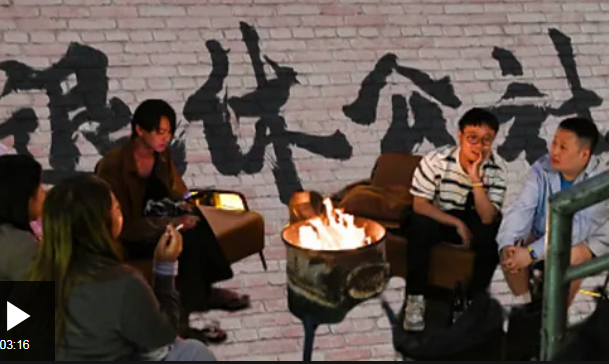In recent years, a growing trend has emerged among Chinese young people: fleeing the high – pressure “involution” workplace and choosing to live a more laid – back life in the countryside by joining so – called “retirement communes.” This shift in lifestyle reflects the changing values and attitudes of the younger generation in the face of intense work competition.
The Burden of Workplace Involution
In modern Chinese society, the concept of “involution” has become a buzzword. It refers to the phenomenon where individuals are trapped in a cycle of excessive competition, often sacrificing their well – being for the sake of career advancement. In the workplace, this means long working hours, high – stress environments, and cut – throat competition. Many young people find themselves constantly on the verge of burnout, struggling to balance work and personal life.
The Appeal of the “Rural Lie – Flat” Life
The countryside offers a stark contrast to the fast – paced urban workplace. The “retirement communes” that young people are flocking to are usually small communities in rural areas where they can live a simple and peaceful life. These communes often provide basic living facilities, and residents can engage in activities such as farming, handicrafts, and self – sufficient living. For young people, this is an opportunity to escape the hustle and bustle of the city, reconnect with nature, and focus on their own inner peace.
The “Retirement Communes” Phenomenon
These “retirement communes” are not traditional retirement communities. Instead, they are a new form of community mainly composed of young people. In these communes, people share resources, knowledge, and experiences. They work together on community projects, such as building houses, growing vegetables, and organizing cultural events. This kind of communal living not only provides a sense of belonging but also allows young people to develop new skills and interests.
Social and Economic Implications
This trend has both social and economic implications. Socially, it shows that the younger generation is more concerned about their quality of life and mental health. It also challenges the traditional values of hard – work – at – all – costs. Economically, it could potentially boost the rural economy. As young people move to the countryside, they may bring in new ideas and investment, which could help develop rural tourism, handicrafts, and other industries.
In conclusion, the phenomenon of Chinese young people fleeing the “involution” workplace and joining “retirement communes” in the countryside is a significant social change. It reflects the younger generation’s pursuit of a more balanced and fulfilling life, and it may also bring new opportunities for rural development.
